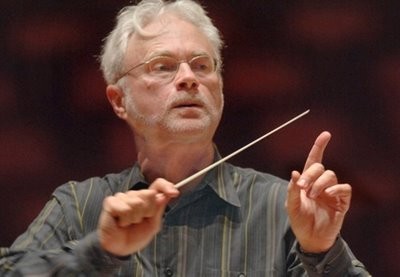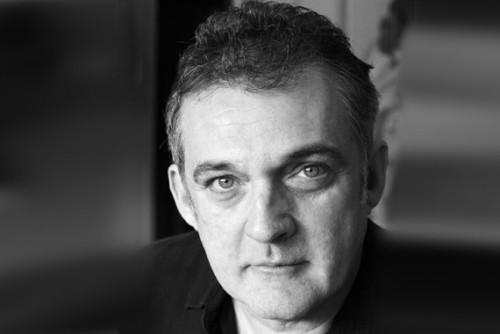Creators Discuss Nixon in China at the Metropolitan Opera
What to Expect in HD Telecast
By: Susan Hall - Feb 11, 2011
Nixon in China
Panel discussion
Metropolitan Opera House
February 1, 2011
On stage:
Peter Gelb, General Manager of the Metropolitan Opera
John Adams, Composer and Conductor
James Maddalena, Richard Nixon
Adrianne Lobel, Set designer
Mark Morris, choreographer
Peter Sellars, production design and director
As this group which collaborates so unusually well, entered the stage, it was not surprising to see Peter Gelb and Peter Sellars take seats at opposite ends of the table. When Dr. Atomic, which brought together many members of this group, was mounted at the Met in 2008, Sellars was dropped by Gelb. Gelb thought the world premier of Dr. Atomic in San Francisco did not work, and brought in Penny Woolcock to put on the production here. Alan Gilbert, the Philharmonic’s music director (in waiting at the time), conducted.
Weather had kept Alice Goodman, the librettist, at Heathrow in London and that was too bad. Her couplets are well known. and work well here and in her other libretto for Adams and Sellars, The Death of Klinghofer.
Sellars is one of the most important creators working today. He programmed classical music for the local station in Andover, Mass when he went to high school. For years after he left, the programs were rebroadcast because his are as good as it gets. Sellars has always been at the top of his game. He and Adams met when Sellars suggested an opera based on Nixon’ 1972 trip to China.
Adams admits that he did not at first see the merit of this idea. But once he took it up, he worked with Sellars. On stage, although they were separated by three of their collaborators, they are joined at the hip, and the result gives great pleasure.
Some effort was made, in fact, to keep the discussion on uplift. Mark Morris said that we have found out since the creation of this opera twenty years ago, that Mao suffered from hemmorroids and bad teeth.
Gelb interrupted, “We are selling tickets here. Surely these points about Mao are not on stage.”
Morris grinning, “Of course they are.” (I didn’t see them.)
Morris was ever the contrarian While other creators discussed how miuch research they had done, Morris said he'd skipped the research and relied on memories of a film on Chinese dance he'd seen as a teenager.
Sellars has discussed Adams' music. "John's harmonic language takes you into the area of right and wrong. where not just anything goes.
Drama is always about moral imperaives so that is very powerrful. Deep spiritual strugggle is based on harmonic understanding like Bach.
Sellars also discussed using contemporary history as the storyline for opera. "We aren't getting an actual history of our times. We are used to the media frenzy, with the rush to judgment and the rush for the scoop and then it gets dropped. We are strangely uninformed about what is going on and what is at stake. Context is not repored very deeply."
Opera is able to go to places wnere the headlines aren't going. It can take a longtime view. Adams' music goes back through time. Goodman's language is contemporary, but she also refers to the Bible and the metaphysical poets. Part of the success of NIxon is that it is developed out of so many small pieces.
Sellars and Adams are both sure-footed. Sellars always helps us see whatever is already there. Adams music is large scale, immense and powerful.
They are mischievous, this group. so listen and watch for the wit and the subtle, surprising gesture.
Beethoven wrote music about aspiration and the struggle for freedom and was contextually very complex. Are Adams and Sellars thinking about the downfall of Mubarak today? Probably.
.




